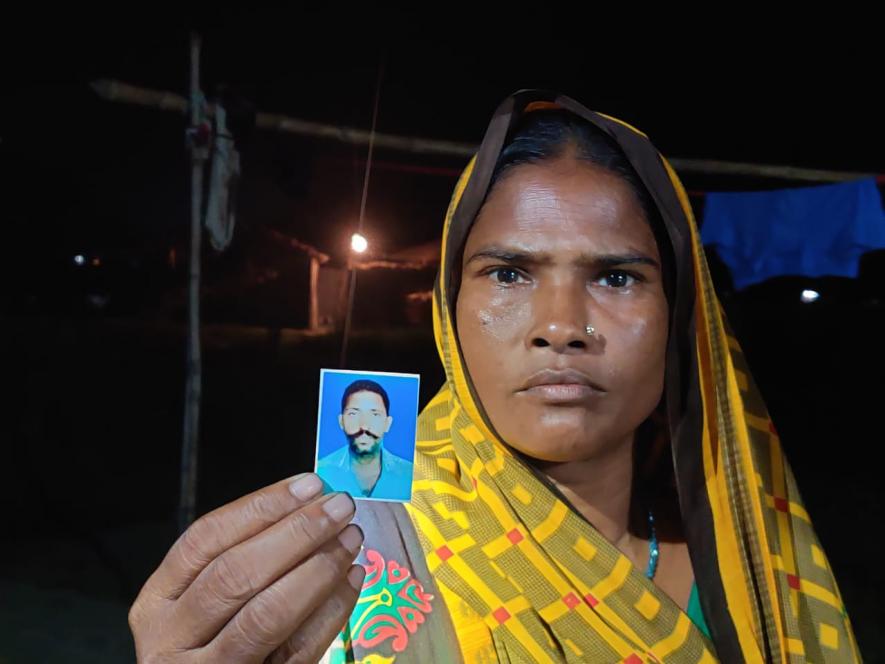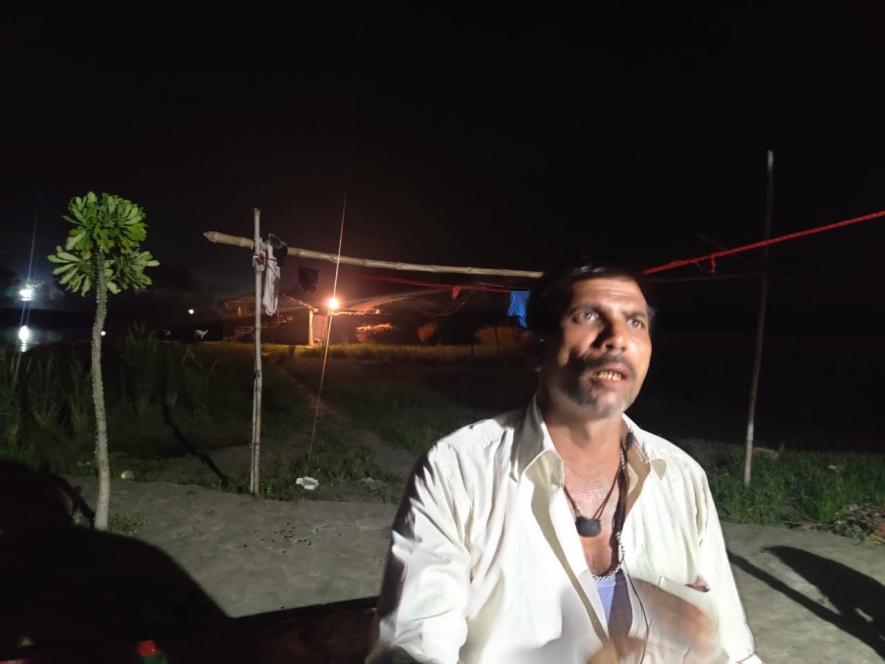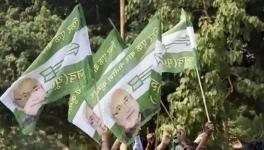Bihar Elections: ‘Yes Sir, I’m Drunk.’ The Ground Reality of Nitish Kumar’s Prohibition

Rekha Devi, showing picture of her dead husband whose life was claimed by illicit liquor on January 1,2020
Rampur Kashi, Muzaffarpur: “Haan saheb jhoot nahi bolenge, ek glass daru piye hain. Lupt hai na (Yes sir, I will not lie, I’ve had a glass of alcohol. It has gone missing no),” said Rajesh Kumar Manjhi.
The 38-year-old’s persistent cough attracted this reporter. However, his medication and the and doctor’s said his problem was not COVID-19, but a liquor addiction.
In the ‘smart city’ of Muzaffarpur, country-made liquor is easily available at the cheapest price and has also claimed about seven lives here between the beginning of the year and October 10.
The village of Rampur Kashi is about 21 kilometers south of Muzaffarpur. Rekha Devi, a Dalit woman who lives in a thatched hut, lost her husband on January 1 to country-made liquor. Rekha Devi, in her late 40’s, said that her sons have been taking care of expenses while she has been struggling to find work after the COVID-19 induced lockdown.
“My husband, Nand Lal Sahni, was 48 years old and had developed health complications due to drinking country-made liquor everyday. He was a daily-wager and used to make Rs 300 everyday and spend over Rs 100 on liquor. It is easily available in every village here. Even small kids know where one can source it from. It is being made in many homes in the village,” she said, wiping her tears with her sari.
She said that her husband died while undergoing treatment for his ailment at a state-run health facility. On being asked if she received any compensation from the government, the answer was a straight no.
“The police did not come by to inquire about the cause of death, despite knowing that my husband died because of the tharra; the government did not announce any compensation to help me,” Rekha said.
A stone-throw away sat Manjhi, coughing continuously. A father of three kids, he said that he experiences pain in his chest and abdomen and has been coughing for many months now. “Sir, I was not a drunkard earlier. I got addicted due to my friends who have been drinking and now I need a glass everyday. I know it is bad for me and I know I might die soon but I cannot do anything about it,” he said.

Ajay Sahani, who lost his two of his family members to hooch is now an activist working against hooch.
A visit to the liquor de-addiction centre in Muzaffarpur district exposed its poor infrastructure. An office bearer at the centre, who wished to remain anonymous, said: “Now, people do not come here. When prohibition was imposed a lot of people were admitted but now only very serious cases come to these centres and the government is also not paying much heed,” he said.
Notably, soon after the ban on alcohol, there has been a reported increase in the consumption of other drugs.
According to data provided by the Bihar Prohibition and Excise Department, in the first week of March, huge consignments of liquor were seized in several districts – 4,203 litres from Muzaffarpur, 851 litres from Samastipur, 558 litres from Darbhanga, 334 litres from Madhubani, 312 litres from Banka, 120 litres from Begusarai, 113 litres from Nalanda and 103 litres from Kaimur.
According to the latest data from the police headquarters in Patna, a total of 47,395 cases were lodged in matters related to illegal liquor between April 2016 and January 2020, with the total liquor seized amounting to 78,78,540 litres. The number of vehicles seized were 28,334 (heavy vehicles 10,085 and light vehicles 18,289), the number of arrests were 2,12,323 (out of which 19, 674 were suppliers); convictions were 232; disciplinary action were initiated against 517 officials (including policemen); suspended officers were 454; 73 were dismissed from service; FIRs were lodged against 44 policemen and 10 inspectors were prohibited from an SHO posting for 10 years.
Ajay Sahani, a resident of Mahant Maniyari village, about 30 kilometers from the Muzaffarpur district headquarters, has been raising his voice against the illicit liquor trade running in the state. He said the police are “hand in-glove” with the bootleggers.
“I have written letters to the chief minister, the director general of police, inspector general and called the local station house officer at least twice a week but my pleas against the people involved in this trade have never been heard. In my knowledge, over 200 people have died due to consuming liquor and in liquor-related accidents,” he said. He said that after the ban in April 2016, people started producing it in their homes. “A 750 ml bottle is easily available for Rs 100 and daily wagers resort to drinking a glass which is about Rs 20 for between 100 to 150 ml of hooch,” he added.
“I am doing this because I have lost two of my family members due to alcohol,” he said.
Liquor was so readily available that a local cab driver, who happened to be a part-time bootlegger, was interested in selling his wares. A hand-gesture was enough to get the message across. It was made available after just one phone call and within twenty minutes. However, its price was double that of the MRP.
D.M. Diwakar, a social scientist and an ex-professor from the A.N. Sinha Institute of Social Studies, said the ban “has made some impact on the ground as cases of domestic violence have decreased in the state. It is one visible impact.”
“Liquor in the state is available in the black market at higher prices. In rural areas country-made liquor is also easily available,” he added. Diwakar was of the opinion that the move was “good” but that there was a lack of preparation. “The police has taken action against the carriers and nor against the producers or the big fish who dirtying the pond,” he added.
The department of excise could not be reached despite several calls to its office.
Get the latest reports & analysis with people's perspective on Protests, movements & deep analytical videos, discussions of the current affairs in your Telegram app. Subscribe to NewsClick's Telegram channel & get Real-Time updates on stories, as they get published on our website.























